Log in or create new account to save this product to your wishlist.
The Top 20 Evergreen Climbers to Transform Your Garden
Evergreen climbers offer year-round interest, fragrance, texture, and privacy for your garden. But you need to know which climber matches your garden's conditions. Explore the Top 20 evergreen climbers!
Latest articles
7 MIN 22 Jul How to keep your lawn in shape this summer 9 MIN 15 Jul Watering Your Garden: 10 Top Tips! 11 MIN 15 Jul Is Your Grass Type Right for your Garden? 11 MIN 10 Sep Create Your Low-Maintenance Garden – Tips and Ideas 11 MIN 08 Sep The Ultimate Guide to Choosing the Perfect Hedges for Your Garden 6 MIN 27 Aug How to Choose the Right Pruning ToolsWhether you’re looking to revitalise a garden fence, add a spray of green to a brick wall, or simply enjoy the beauty of climbing plants, this guide will help you explore the top 20 evergreen climbers that can bring year-round charm to your garden.
- Evergreen climbers — the basics: what you need to know
- How evergreen plants climb
- Choosing the Perfect Climber
- The Top 20 Evergreen Climbers
- Planting Tips for Evergreen Climbers
- FAQs
Evergreen climbers typically require minimal care and often thrive where other plants struggle. Indeed, choose the correct climbing plant for your garden’s conditions, and you’ll enjoy year-round foliage that brings interest even in the depths of winter.
This article explores the top 20 evergreen climbers that could transform your garden from boring to beautiful in less than a season.
Ready? Let’s get started!
Evergreen climbers — the basics: what you need to know
While many plants are content to grow vertically, some have adopted a different strategy, monopolising hard-to-reach areas by developing a climbing habit.
These climbing plants use various techniques to scale walls, fences, and other structures, bringing a vertical dimension to your garden that can be both functional and aesthetically pleasing.
How evergreen plants climb
The way a plant climbs can vary. Some climbers, known as ‘true climbers’, have developed self-clinging aerial roots that allow them to adhere to walls and fences without additional support.
These plants may need a helping hand at first — you’ll need to train the plant from the soil towards its trellising or up to the top of your fence, for example. However, once established, they’ll scale surfaces with little intervention.
Examples of such climbers include
- Ivy
- Hydrangea
- Pothos
- Philodendron
- Monstera
- Rhaphidophora
Other climbers use twining stems to reach new heights, requiring support from a trellis or a wire network.
Climbers that rely on twining stems include:
- Clematis
- Honeysuckle
- Jasmine
- Wisteria
These plants wrap their limbs around poles, trellises, or wires to spread.
Wall shrub climbers
Although not true climbers, you can train wall shrubs to grow vertically when tied onto a support structure.
These shrubs often benefit from sheltered locations and can limit weather erosion on walls and fences while providing shelter and food for wildlife.
Wall shrubs include:
- Pyracantha ‘Golden Charmer’
- Itea ilicifolia
- Stachyurus praecox
Choosing the Perfect Climber
Before selecting your evergreen climber, it’s crucial to recognise your garden’s conditions — do you have exposed areas prone to wind or sun damage? Or perhaps you have heavy soil that gets waterlogged?
All climbers have specific lighting preferences. And some favour
north, south, east, or west-facing walls.
However — fret not! There are evergreen climbers for all conditions, from full sun to deep shade. And matching the right plant to the appropriate location is the key to achieving successful growth.
To help you make an informed choice, here is a selection of the top 20 evergreen climbers, each with its own unique features.
The Top 20 Evergreen Climbers
1. Chocolate Vine (Akebia quinata)
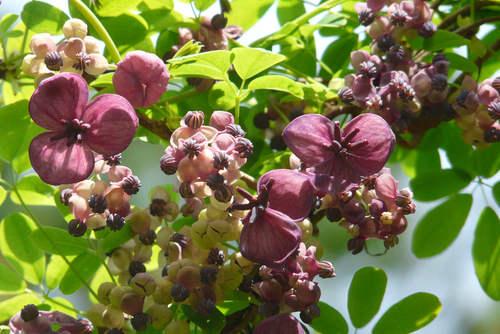
The chocolate vine is a fast-growing climber that brings a touch of the exotic to your garden. Its dark maroon flowers, which appear in the summer, give off a delightful chocolate-like scent, hence the name. The light green foliage provides an attractive contrast to the deep purple flowers.
You can grow a chocolate vine in sun or partial shade, although it may require sheltering in colder regions.
Height x Spread: Up to 10m x 2m
2. Californian Lilac (Ceanothus)
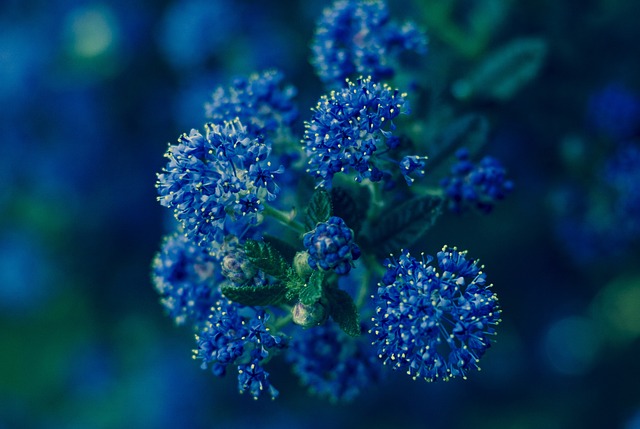
For a stunning wash of blue, consider the Ceanothus (aka Californian lilac). Its woody stems bear masses of tiny blue flowers in clusters, set against crinkled evergreen leaves.
The ceanothus is a firm favourite with bees, making it an excellent choice for those looking to support local wildlife. Your bush will literally buzz with activity all through the summer.
This attractive shrub can be trained against a sunny fence or wall, where it enjoys warmth and shelter. It thrives in full sun, favouring dry conditions and protection from frost and strong winds.
Height x Spread: 3m x 4m
3. Clematis Armandii
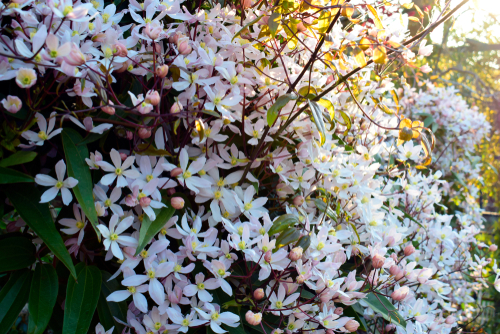
This spring-flowering clematis boasts large clusters of white or pink-tinged almond-scented blooms that contrast beautifully with its large, leathery, dark green leaves.
And while the flowering period lasts throughout the spring, it’s in autumn that this gorgeous plant truly excels — with stunning bright red leaves bringing autumnal beauty to your garden each year.
A new plant reaches maturity and full hardiness within two years and prefers a sunny, sheltered spot to protect the leaves from wind damage. This stunning plant grows larger yearly and will thrive in dappled sunlight.
Height x Spread: Up to 5m x 3m
4. Winter-flowering Clematis (Clematis cirrhosa)
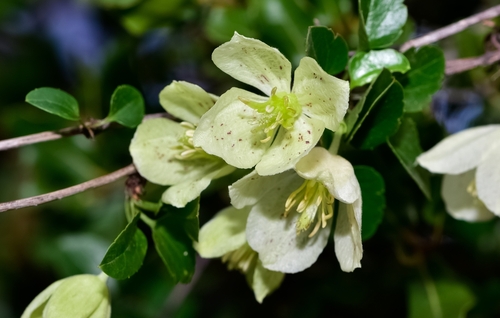
Winter-flowering clematis is a fantastic choice for year-round interest. The green foliage is bountiful throughout the seasons, and – as the name suggests – this stunning plant flowers during the winter.
Varieties such as ‘Early Sensation’ and ‘Winter Beauty’ offer delicate, bell-shaped cream or white flowers set against a gorgeous fern-like foliage.
This clematis variety best suits milder areas and needs sun and shelter.
Height x Spread: Up to 4m x 1.5m
5. Climbing Hydrangea (Hydrangea seemannii)
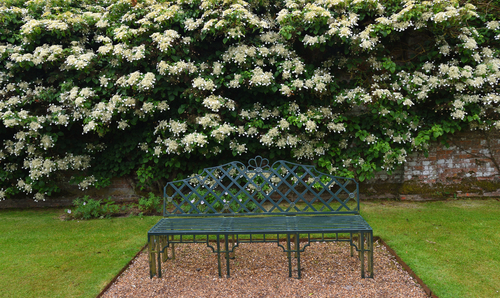
Less common than its deciduous cousin, Hydrangea seemannii offers year-round interest with large heads of white summer flowers set against bold, leathery, dark green leaves.
This fabulous bloomer is self-clinging but may take a while to establish.
Ideal in dappled shade, this hydrangea’s most prolific flowering occurs in areas that aren’t too sunny or shady. Avoid planting close to a winter frost pocket, and situate in a spot sheltered from strong winds.
Height x Spread: Up to 10m x 3m
6. English Ivy (Hedera helix)
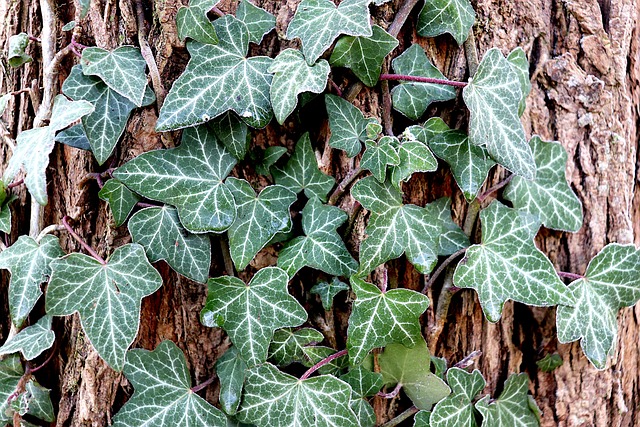
Native English ivy is a versatile, easy-to-grow climber that’s excellent for wildlife, providing effective shelter for nesting birds and hibernating insects. It offers attractive, year-round evergreen foliage in a variety of types and variegations.
Mature plants produce clusters of green-yellow flowers in autumn, popular with insects, and black winter berries for birds.
This unfussy plant will thrive both in sun and shade but requires well-draining, neutral soil that’s clear of waterlogging. English ivy doesn’t do well in highly acidic soil, so add soil improver and garden lime to neutralise your soil’s pH.
Ideal for hiding garden eyesores, such as crumbling walls or decrepit garden fences, the English ivy is excellent for brightening up shady areas of your garden.
Height x Spread: Up to 10m x 10m
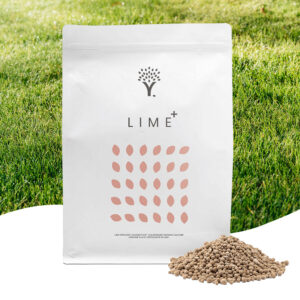
- Suitable for lawns and general garden use
- Neutralises acidic soil
- Encourages deep green foliage
7. Euonymus ‘Silver Queen’
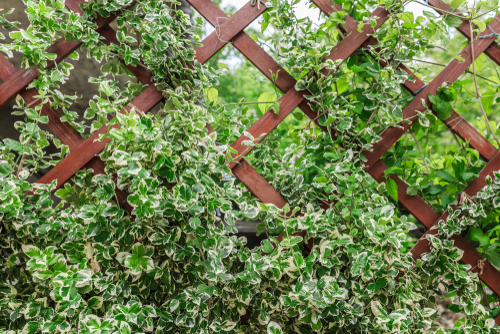
The Euonymus ‘Silver Queen’ is a compact self-clinging climber prized for its attractive foliage. It’s ideal for brightening a dark spot with its leathery evergreen leaves that are brightly variegated in white and green.
Planted in well-draining soil, the Silver Queen will thrive in full sun but also tolerates partial shade.
After planting, cut the bush back by a third in the first spring, encouraging bushier growth.
Height x Spread: 1.5 m x 1m
8. Silk Tassel Bush (Garrya elliptica)
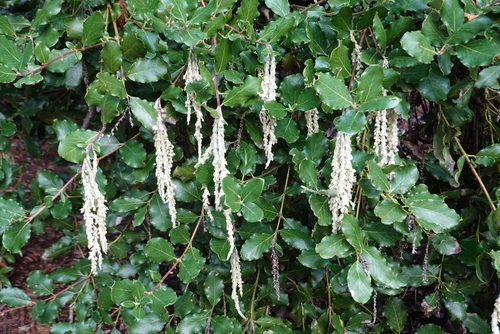
The silk tassel bush is a wall shrub that thrives best in a shady or part-shaded site.
Alongside its evergreen leaves, it bears silvery catkins throughout winter. Your bush will need training to grow closely against its support.
Height x Spread: 3m x 2.5m
9. Japanese Honeysuckle (Lonicera japonica)
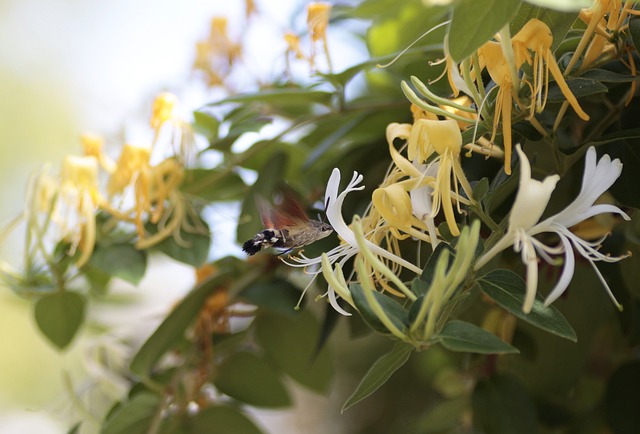
Japanese honeysuckle is a vigorous, twiggy, self-clinging, twining climber bearing masses of exotically fragrant flowers in small clusters through summer. Its rounded leaves are semi-evergreen and may fall after a hard winter.
Honeysuckle is perfect for screening or covering unsightly features in natural-looking garden areas, being rather untidy in habit. However, this pungent flowering climber is suited to full sun or partial shade.
Height x Spread: Up to 10m x 4m
10. Henry’s Honeysuckle (Lonicera henryi)
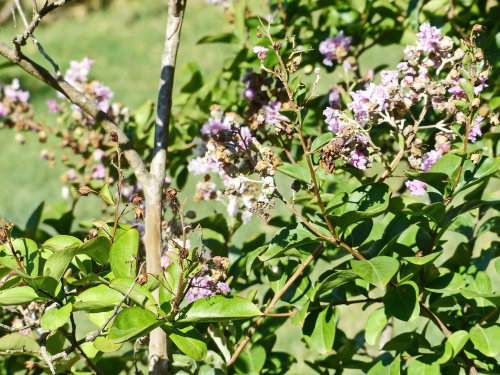
Henry’s honeysuckle features clusters of unscented yellow flowers set against long, oval, dark green leaves that are coppery-green when young.
This variety favours partial (or even full) shade, although it will cope in sunnier spots.
This plant can be semi-evergreen in a cold winter but should recover in spring. Reasonably drought-resistant, you shouldn’t need to water Henry’s honeysuckle if there’s fairly regular rainfall.
Height x Spread: Up to 10m x 2m
11. Maidenhair Vine (Muehlenbeckia complexa)
Maidenhair vine is a unique foliage climber from New Zealand that produces a mass of slender, wiry, twining stems clothed with tiny dark green leaves.
It can be trimmed with shears if a neat shape is desired, but it looks great if you let it grow wild. It grows best in part or full shade.
Height x Spread: Up to 4m x 2.5m
12. Passion Flower (Passiflora caerulea)
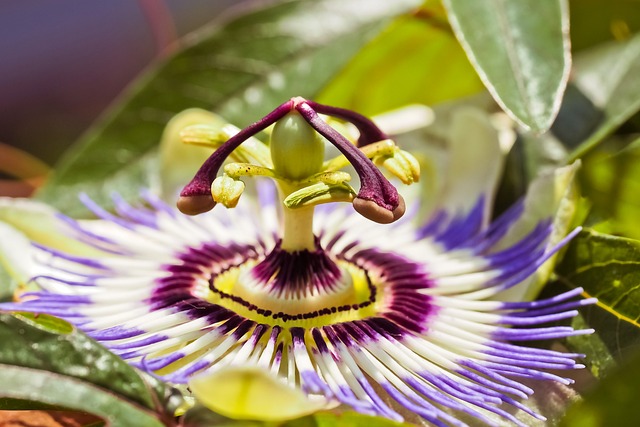
The passion flower is a vigorous grower loved for its large, unusually shaped blue and white or pure white flowers, borne against dark green leaves that may fall after a hard winter.
Edible orange fruits can sometimes be produced after a hot summer.
Passion flowers require full sun and well-drained soil. Fertilise in spring and during the summer for optimal blooms.
Height x Spread: 12m x 4m
13. Persian Ivy (Hedera colchica)
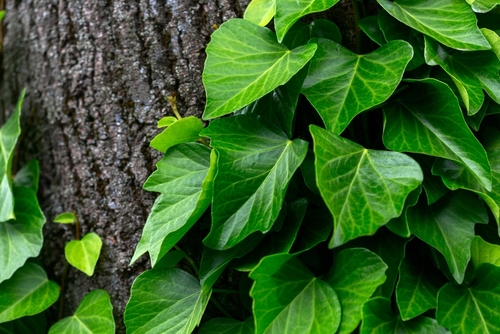
Persian ivy is a handsome self-clinging climber with exceptionally large, glossy, lobed leaves variegated with white or lime-green.
Greenish flowers can be produced in autumn on mature plants. It is excellent for wildlife and thrives in sun or shade.
Height x Spread: 5m x 5m
14. Climbing Hydrangea (Pileostegia viburnoides)
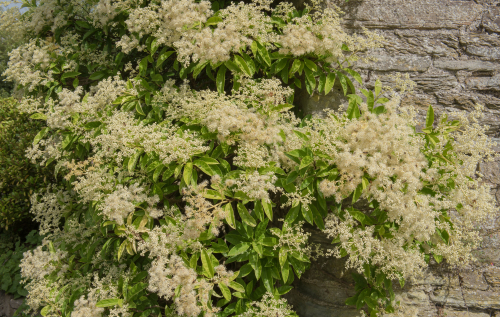
Pileostegia viburnoides has bold, leathery green leaves on self-clinging vines that make an excellent backdrop for its large white flowers in late summer and autumn.
It is best grown in sun or shade but should be sheltered from cold winds.
Height x Spread: Up to 8m x 1.5m
15. Firethorn (Pyracantha)
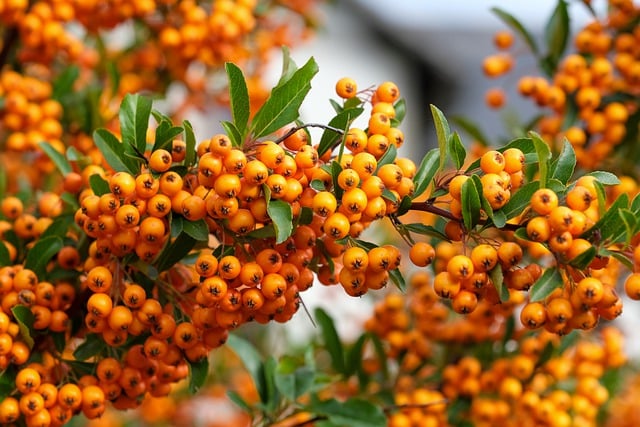
Pyracantha is a thorny shrub that can be trained on wires or trellis to grow closely against its support.
Small oval green leaves provide year-round interest, with clusters of white flowers in spring. The bright autumn berries will attract birds.
Suits sunny or partially shaded areas. This plant enjoys moderately fertile soil that can be free-draining or heavy clay (so long as it doesn’t get waterlogged).
Height x Spread: Up to 3m x 3m
16. Potato Vine (Solanum laxum ‘Album’)
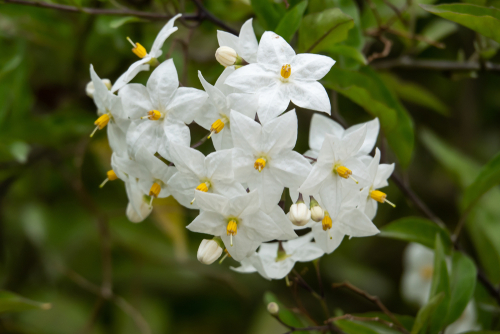
Potato vine is a fast-growing flowering climber, ideal for a sheltered site. It bears masses of white, yellow-centred small flowers in clusters in summer and autumn.
It’s worth noting that it’s only semi-evergreen and may lose some leaves in a cold winter.
Height x Spread: Up to 6m x 6m
17. Bluebell Creeper (Sollya heterophylla)
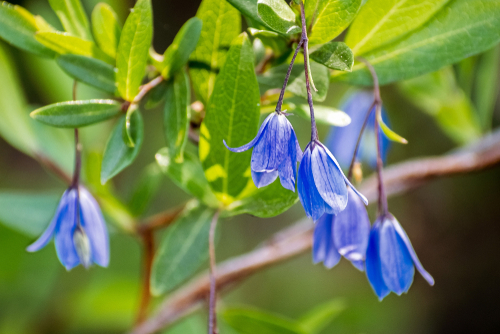
The bluebell creeper is a dainty little flowering climber for a sunny, sheltered or very mild location. Its tiny, deep blue flowers are borne on slender stems in summer.
Height x Spread: Up to 2m x 2m
18. Star Jasmine (Trachelospermum)
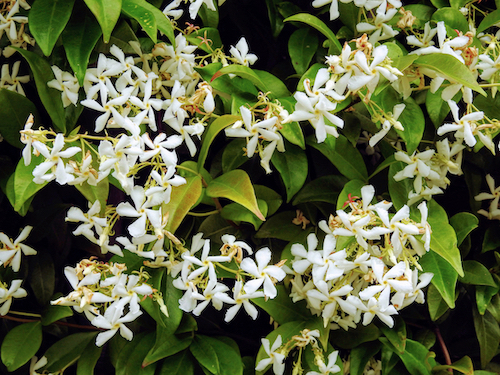
Star jasmine bears wonderfully fragrant flowers for an extended period throughout the summer and into autumn. The handsome evergreen foliage offers moderately fast growth, make star jasmine an extremely popular choice.
Jasmine enjoys full sun or partial shade if it’s sheltered from winds. This plant is not suited to icy areas.
Height x Spread: Up to 9m x 5m
19. Stauntonia Hexaphylla
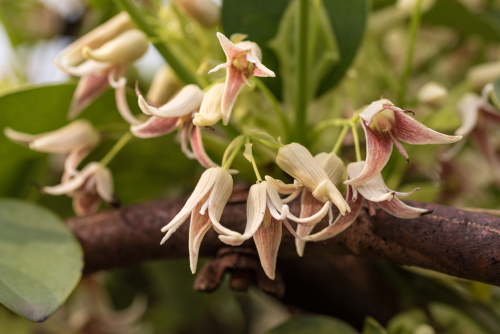
This uncommon climber quickly covers a sheltered, part-shaded wall with vigorous twining stems clothed with oval dark green leaflets.
Clusters of white, purple-tinged spring flowers are unobtrusive but are wonderfully scented.
Height x Spread: 10m x 2.5m
20. Wall Germander (Teucrium fruticans)
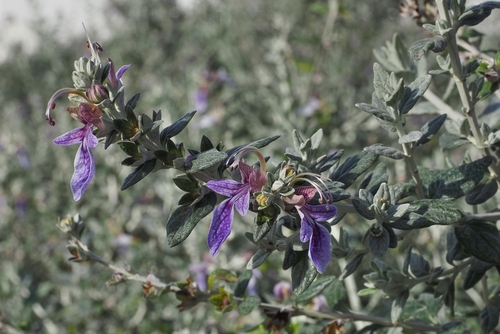
Wall germander thrives best in the shelter of a sunny wall, where its slender stems of silvery leaves can be tied in to make a contrasting backdrop to its blue summer flowers.
Height x Spread: 3.5m x 3.5m
Planting Tips for Evergreen Climbers
When planting your chosen evergreen climbers, there are a few key points to keep in mind:
- Ensure the plant’s preferences match its site.
- Check the soundness of walls, as climbers can exacerbate degeneration if the mortar is crumbling.
- Prepare the soil well to give the climber the best possible growing conditions, adding plenty of soil improver like compost or well-rotted manure.
- Avoid the ‘rain shadow’ – the area immediately beneath a wall or fence that’s sheltered from rain and tends to be too dry for most plants. Plant the rootball at least 30cm away from the wall or fence to avoid it.
- Water well after planting and continue to water during dry period throughout the first growing season.
With these tips in mind, you can enjoy a garden full of vibrant, evergreen climbers throughout the year.
FAQs
Some of the most popular evergreen climbers for privacy are Maidenhead vine, Henry’s honeysuckle, climbing hydrangea, English ivy, and Wall germander. These striking climbers offer great foliage density, increasing your garden’s privacy.
Some of the most popular evergreen climbers include English ivy, climbing hydrangea, Bluebell creeper, Maidenhead vine, and Firethorn. Most of these plants look different each season, giving your garden a natural, seasonal look.
Several evergreen climbers thrive in the shade, including ivy, honeysuckle, potato vine, and Maidenhead vine.
Any questions?
I hope I’ve provided some inspiration to help you choose which evergreen climber suits your garden’s conditions. But if you have any questions, get in touch!
Or check out our expert Help & Advice section for a range of gardening and lawn care articles!
Thanks for reading.
Leave a comment
Your answer will be displayed on the site and the interested party will be notified by email.
Leave a comment
Have a question or want to share your experience? Leave us a comment.
Read more
The best tips and tricks for a lush green lawn
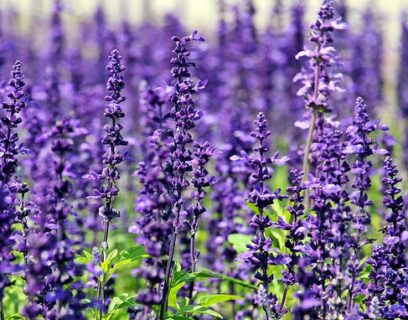 7 MIN
13 Sep
Lavender Cuttings: a step-by-step guide
7 MIN
13 Sep
Lavender Cuttings: a step-by-step guide
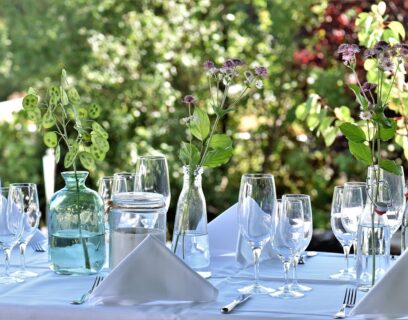 11 MIN
10 Sep
Create Your Low-Maintenance Garden – Tips and Ideas
11 MIN
10 Sep
Create Your Low-Maintenance Garden – Tips and Ideas
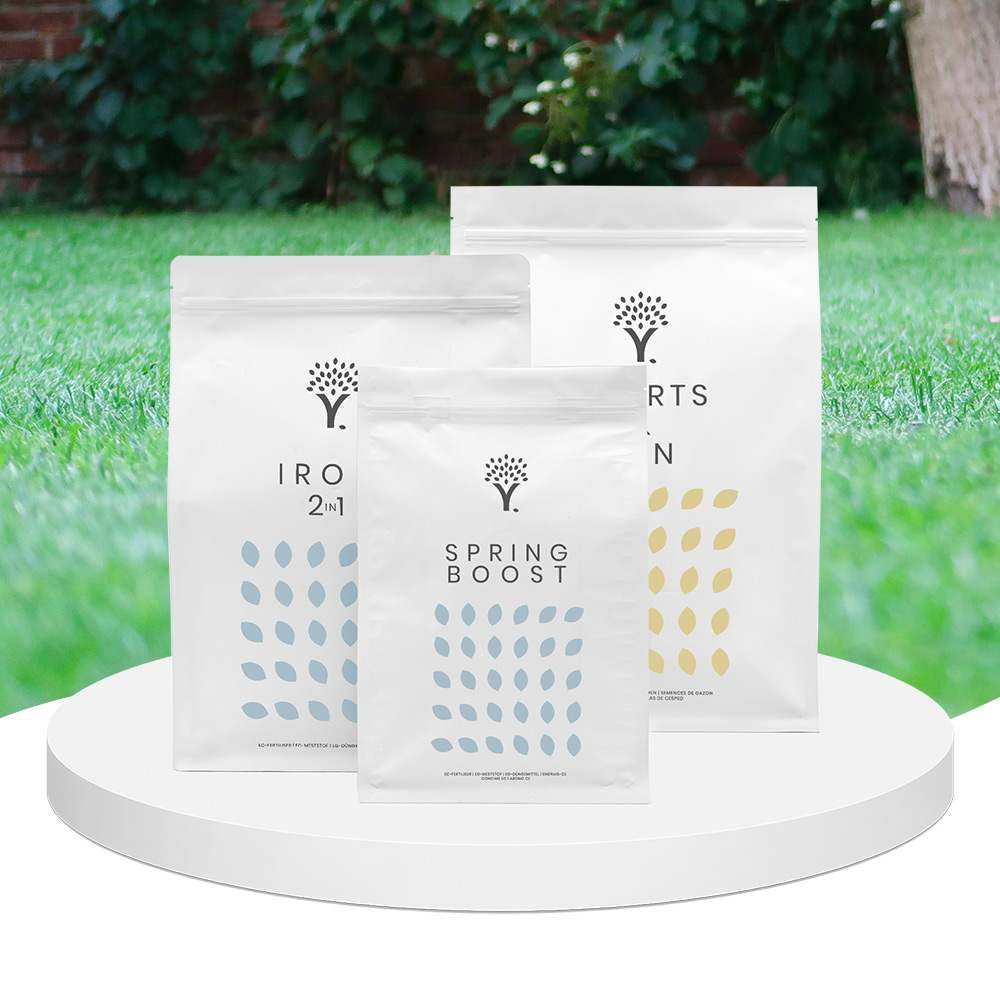 Scarifying Kit
All products after scarifying | Quickly restores the lawn after scarifying | Outsmart weeds quickly with the use of this kit
From: € 39.99
Scarifying Kit
All products after scarifying | Quickly restores the lawn after scarifying | Outsmart weeds quickly with the use of this kit
From: € 39.99
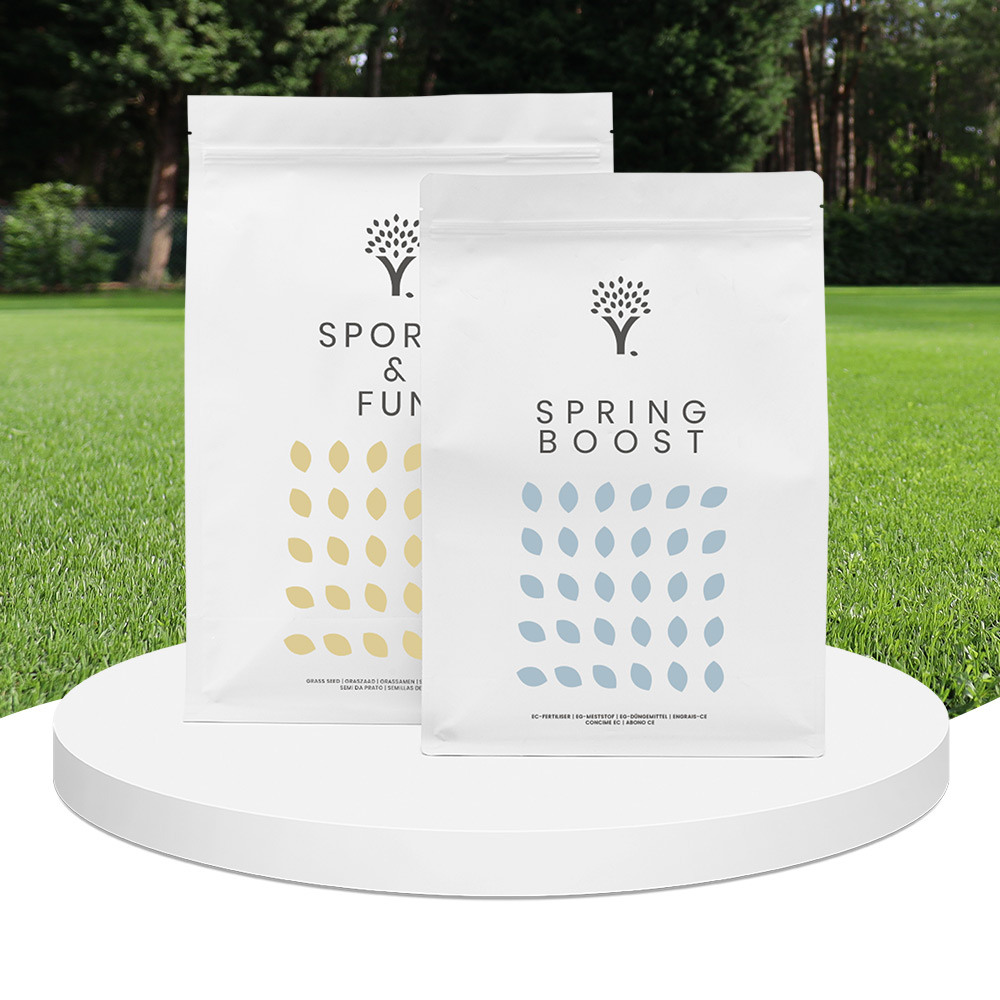 Spring Lawn Care Kit
MOOWY’s choice for the spring | Quick recovery of your lawn after winter | A strong lawn prevents weeds
From: € 25.99
Spring Lawn Care Kit
MOOWY’s choice for the spring | Quick recovery of your lawn after winter | A strong lawn prevents weeds
From: € 25.99
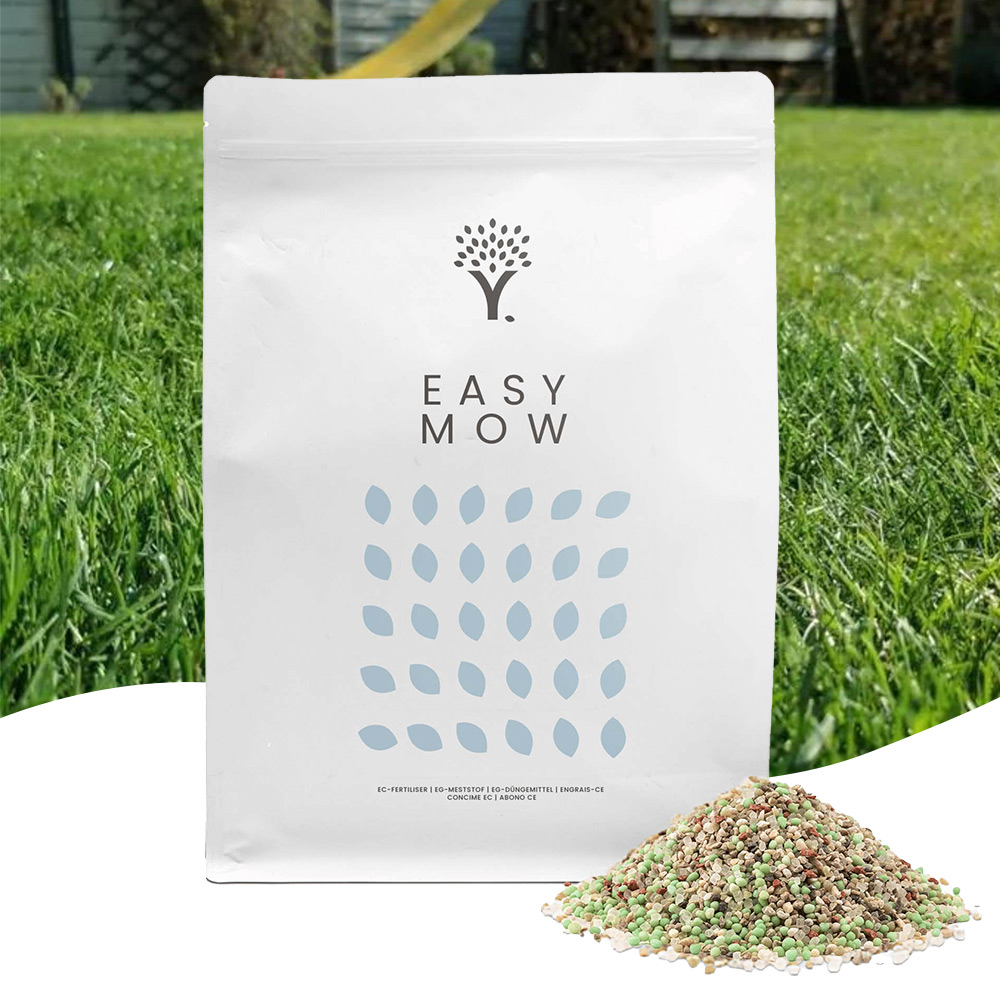 Long Lasting Lawn Fertiliser
Effective for 90 days | See results in 14 days! | Suitable for all types of grass and soil
From: € 13.99
Long Lasting Lawn Fertiliser
Effective for 90 days | See results in 14 days! | Suitable for all types of grass and soil
From: € 13.99
Do you want a lawn calendar?
🌱 All important maintenance moments for your lawn during the year. Leave your email and we will send you the lawn calendar for free.
Enter your email
Receive the lawn calendar in the mail
Enjoy a green lawn all year round!




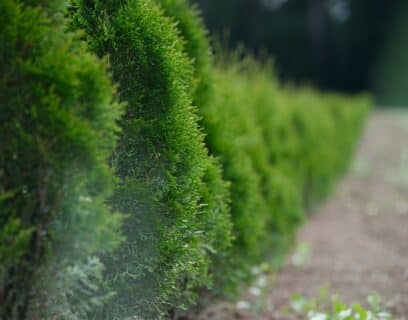

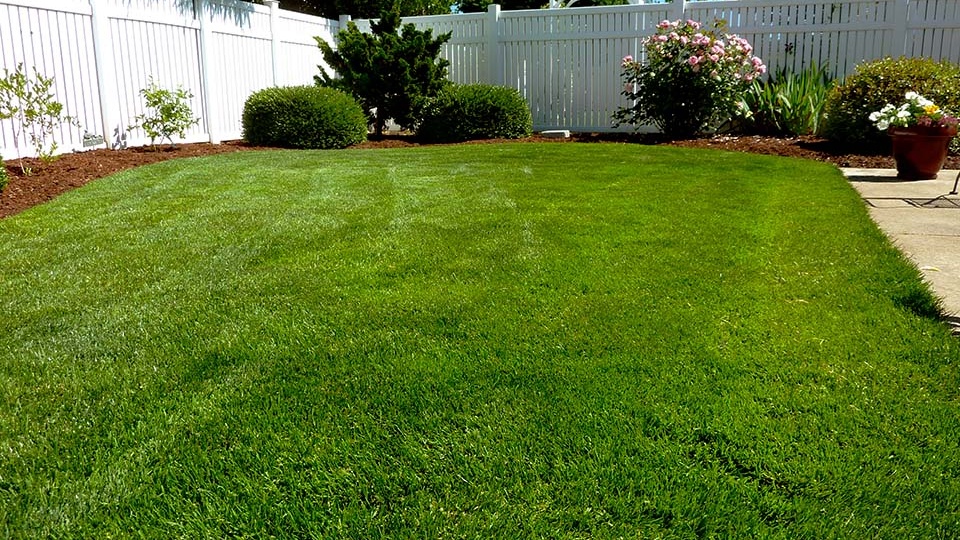
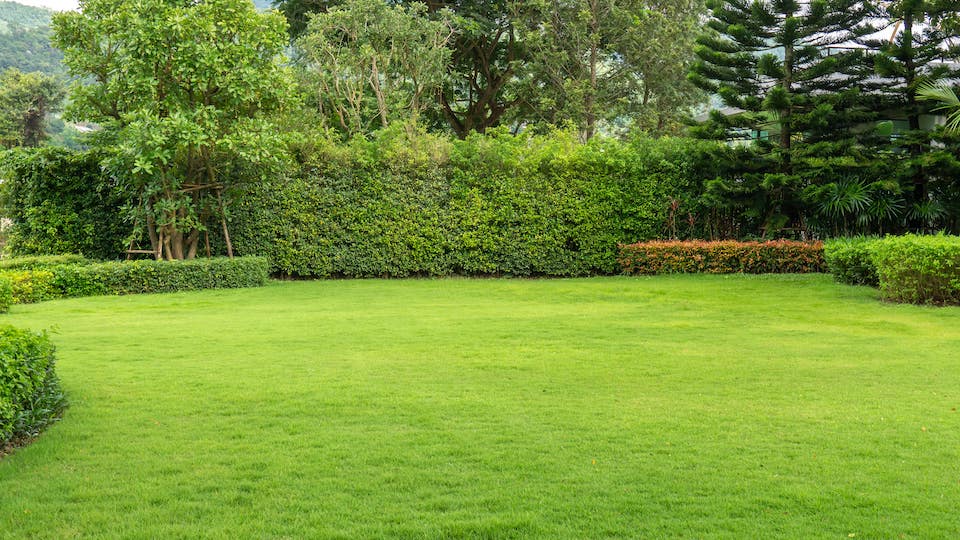
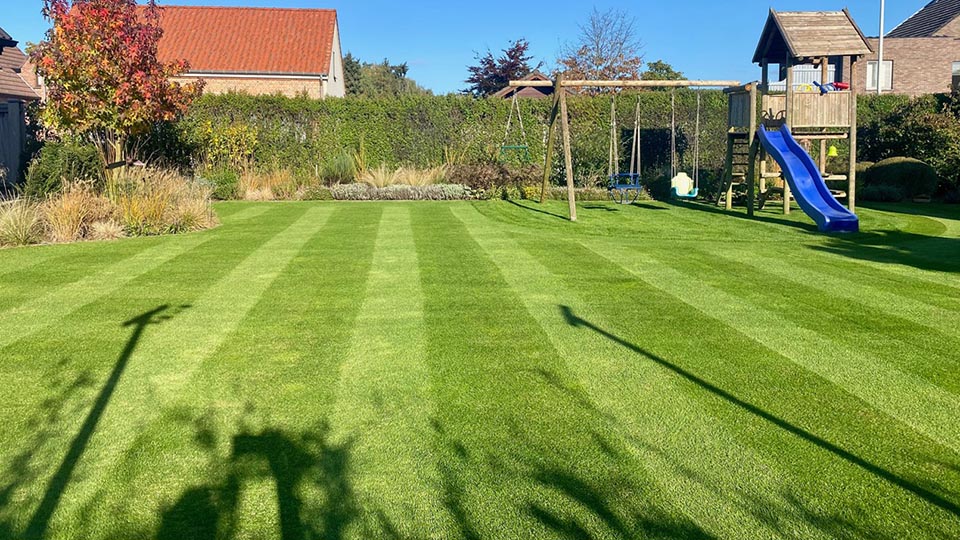
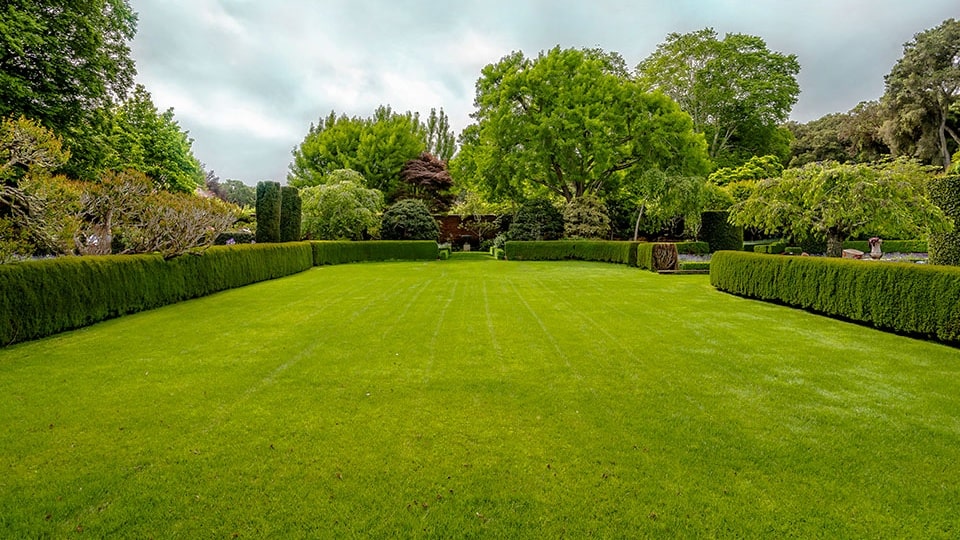
Comments (0)
There are no comments yet. Well then, what are you waiting for to
Be the first to write your comment!inaugurate this pretty page?
Do you have some comments?